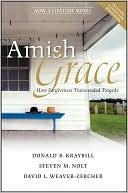"Just Between You and Me" by Jenny B. Jones
Maggie Montgomery lives a life of adventure. Her job as a cinematographer takes her from one exotic locale to the next. When Maggie's not working, she loves to rappel off cliffs or go skydiving. Nothing frightens her. Nothing, that is, except Ivy, Texas where a family emergency pulls her back home to a town full of bad memories, painful secrets, and people Maggie left far behind. . . for a reason. Forced to stay longer than she intended, Maggie finds her family a complete mess, including the niece her sister abandoned. Ten year old Riley is struggling in school and out of control at home. The only person who can really handle the pint-sized troublemaker is Conner, the local vet and Ivy's most eligible bachelor. But Conner and Maggie keep butting heads -- he's suspicious of her and, well, she doesn't rely on anyone but herself. As Maggie humorously fumbles her way from one mishap to another, she realizes she's going to need to ask for help from the one person who scares her the most. To save one little girl, and herself, can Maggie let go of her fears and just trust God?
Discuss the book (click on the question and give us your feedback)
1. The insightful Eleanor Roosevelt once said, "What you don't do can be a destructive force". How was this true in Maggie Montgomery's life? Do you have any examples of your own to share?
2. What would you attempt to do if you knew you could not fail?
3. Connor tells Maggie to get out of the driver's seat and let God take control. In what areas did she need to apply this advice? What about in your own life (children, family, work, personal fears)
4. Fear abounds in our society right now--from the economy, the housing market, to a decline in family values. Why is it so hard to trust God for all our needs, even in the scary, uncertain times?
5. What fears did Maggie have? What about Connor?
6. Imagine you are Maggie. What advice would you have given Riley to allay her fears? When things occur that are so unfair, how do you explain to a nonbeliever that an invisible God is in control?
7. What are some ways Beth is there for Maggie? Describe a time when a friend came through for you in a dark time with help or just the right words. Have you ever been able to pass that favor on?
8. Maggie struglles with her past holding her back. In what ways can our families and past events become like shackles and prevent us from truly living a full life?
9. Isaiah 43:1-3. What did this verse mean to Maggie's life? What does it mean to yours?
10. What things did Maggie doubt? What about Riley? Describe a time when you struggled with doubt. What did you do to overcome it? Can you think of a time when fear got the best of you?
11. Maggie decides to pursue her dream of producing documentaries, even though it's a pursuit where few succeed. Why is it our nature to play it safe? Is this good common sense--or lack of faith?
12. Do we pass fears and phobias on to our children? How can we break that generational habit?
13. Describe how Maggie's phobia of water got in the way of her life. Do you have a phobia? Could it be preventing you from fulfilling your life purpose?




